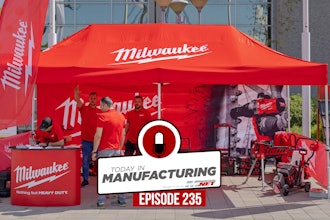Ford Motor's Kentucky Truck plant is trying a new strategy to address quality control problems. Instead of assembling trucks and fixing any issues after they are completed, they stop production whenever a quality issue arises. The plant shuts down the line so engineers and suppliers can fix defective parts.
In a recent Reuters report, plant manager Joseph Closurdo gave an example from earlier this year when he shut down production for three days. When you're making Super Duty pickup trucks, such a strategy can cost the company millions.
Ford plans to soon unveil a redesigned truck, and the new quality control method is part of a strategy shift to catch bugs before the trucks hit the road.
These trucks are big ticket items for the automaker, some going for more than $100,000, and they generate billions of dollars for Ford. The Super Duty launch is super critical for a line that has been around since 1998.
Quality problems have been costly for the automaker, which spent some $4.17 billion on warranty claims last year, and the company hopes that catching these problems earlier in the process will pay off over time.
To help, the company invested in 300 new quality inspectors at the plant as well as engineers to run down root causes as they come up.
The scale sounds incredible, with cameras sending images of electrical connections to software to make sure they are done correctly. Engineers even have command centers with "more big screens than many sports bars," each watching real-time data from the assembly line.
If all goes according to plan, this forward-thinking quality control process could spread throughout Ford's ecosystem, becoming the new standard.






















